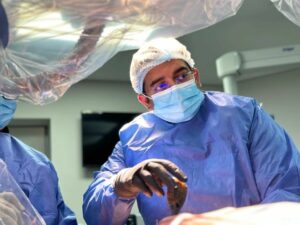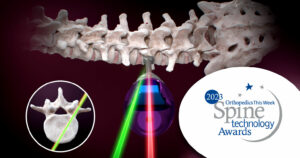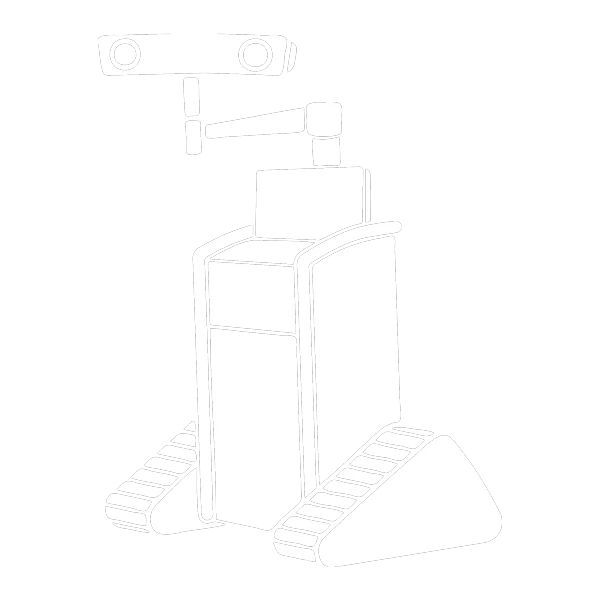
Who is a Candidate for Minimally Invasive Spine Surgery
Minimally invasive spine surgery (MISS) has revolutionized the field of spinal treatments by offering patients reduced recovery times, less postoperative pain, and smaller incisions compared to traditional open surgery. The focus key phrase “who is a candidate for minimally invasive spine surgery” is essential to understand if you or a loved one could benefit from this advanced surgical approach. Most importantly, consult with a spine specialist to determine if MISS is the right option for you.
What is Minimally Invasive Spine Surgery?
Minimally invasive spine surgery involves techniques that minimize the damage to surrounding tissues while achieving the same objectives as traditional open surgery. This method uses small incisions, specialized instruments, and often, real-time imaging to assist the surgeon during the procedure.
Key Benefits of Minimally Invasive Spine Surgery
- Reduced postoperative pain
- Shorter hospital stays
- Faster recovery times
- Smaller scars
- Lower risk of infection
Who is a Candidate for Minimally Invasive Spine Surgery?
Degenerative Disc Disease
Patients suffering from degenerative disc disease, which is a common cause of chronic back pain, may be ideal candidates for MISS. This condition involves the deterioration of the intervertebral discs, leading to pain and reduced mobility.
Herniated Discs
A herniated disc occurs when the soft inner core of the spinal disc pushes through a crack in the tougher exterior casing. Minimally invasive techniques can effectively address this issue by removing the herniated portion and relieving pressure on the spinal nerves.
Spinal Stenosis
Spinal stenosis involves the narrowing of the spinal canal, which can compress the spinal cord and nerves. Candidates for MISS in this category typically have moderate to severe symptoms that do not respond to conservative treatments.
Mild to moderate Scoliosis and Spinal Deformities
Patients with Mild to moderate scoliosis or other spinal deformities that cause significant pain or functional impairment may benefit from minimally invasive surgery. This approach can correct the alignment of the spine with less disruption to surrounding tissues.
Vertebral Compression Fractures
Vertebral Compression Fractures can be treated with minimally invasive procedures such as vertebroplasty or kyphoplasty, which stabilize the fracture and reduce pain.
Spondylolisthesis
Spondylolisthesis occurs when one of the vertebrae slips out of place onto the bone below it. Minimally invasive techniques can stabilize the spine and relieve symptoms associated with this condition.
Who is Not a Candidate for Minimally Invasive Spine Surgery?
While MISS offers many advantages, it is not suitable for everyone. Patients with severe spinal instability, extensive spinal infections, or large tumors may require traditional open surgery. Additionally, individuals with certain medical conditions that pose high surgical risks may not be candidates for MISS.
Severe Spinal Deformities
Patients with severe spinal deformities, such as advanced scoliosis or kyphosis, may not be suitable candidates for MISS. The complexity and extent of these deformities often require more extensive surgical techniques that provide better access and visibility for the surgeon.
Osteoporosis and Weak Bone Structure
Osteoporosis and other conditions that result in weakened bone structure can disqualify a patient from minimally invasive spine surgery. The weakened bones may not support the surgical instruments and implants adequately, increasing the risk of complications.
Extensive Spinal Conditions
Patients with multiple or extensive spinal conditions may require traditional open surgery. Conditions such as widespread spinal tumors or infections often necessitate a more comprehensive surgical approach to address the various affected areas effectively.
Previous Spine Surgeries
Individuals who have had multiple previous spine surgeries might not be ideal candidates for MISS. Scar tissue from past surgeries can complicate the minimally invasive approach, making it difficult for surgeons to navigate and increasing the risk of injury to surrounding tissues.
Obesity
Severe obesity can pose challenges for minimally invasive spine surgery. The excess tissue can obscure the surgical site and make it difficult to use the small incisions typical of MISS, potentially compromising the procedure’s effectiveness and safety.
Large Tumors or Infections
Patients with large tumors or infections in the spine are generally not suitable for MISS. These conditions typically require open surgery to allow the surgeon to thoroughly remove the tumor or infected tissue and ensure the surrounding areas are properly treated.
Considerations for Who is a Candidate for Minimally Invasive Spine Surgery
Overall Health
General health and comorbid conditions can influence suitability. Patients with significant health issues may face higher risks with surgery.
Diagnosis and Severity
The specific diagnosis and severity of the spinal condition play a crucial role in determining the appropriate surgical approach.
Surgeon’s Expertise
The experience and expertise of the surgeon in performing MISS are critical factors in patient selection.
Conclusion
Understanding “who is a candidate for minimally invasive spine surgery” is crucial for patients seeking effective relief from spinal conditions with minimal recovery time. If you are experiencing chronic back pain or other spinal issues, consult with a spine specialist to determine if MISS is the right option for you.
Disclaimer: The information provided is for educational purposes only and is not a substitute for professional medical advice. Always consult a healthcare professional for medical diagnosis and treatment.
References
- American Association of Neurological Surgeons. “Vertebral Compression Fractures (VCFs).” Retrieved from AANS
- National Institute of Arthritis and Musculoskeletal and Skin Diseases. “Osteoporosis.” Retrieved from NIAMS
- Lowenstein, Jason. “Symptoms of Mild, Moderate, Severe Scoliosis.” Retrieved from Jason Lowenstein, MD
- Mayo Clinic. “Spinal Stenosis: Symptoms and Causes.” Retrieved from Mayo Clinic
- Cleveland Clinic. “Degenerative Disk Disease.” Retrieved from Cleveland Clinic
- Ruthless Spine. “Thoracic Spine Surgery: Herniated Disc Thoracic Spine Surgery.” Retrieved from Ruthless Spine
- National Health Service. “Spondylolisthesis.” Retrieved from NHS
- Mayo Clinic. “Kyphosis: Symptoms and Causes.” Retrieved from Mayo Clinic
- World Health Organization. “Obesity and Overweight.” Retrieved from WHO



